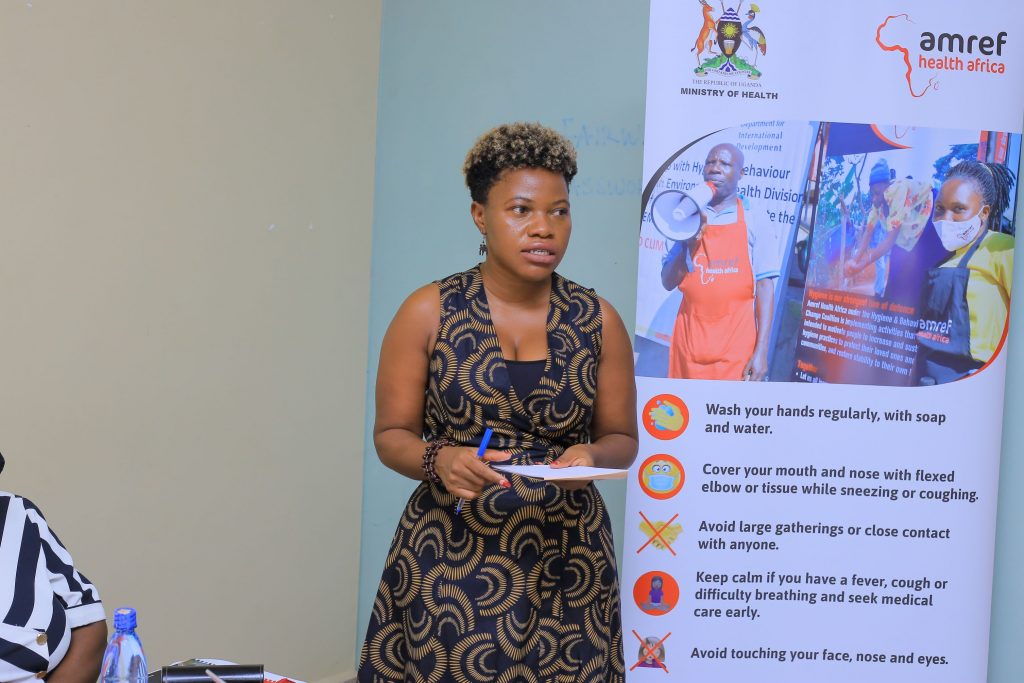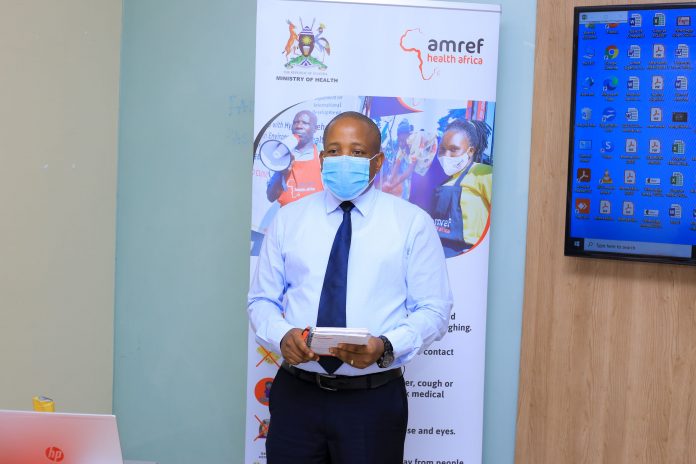By Our writer
Informal cross-border traders have resorted to using porous borders as they avoid the enhanced COVID-19 protocols at formal border points.
Done by Amref Health Africa and the Ministry of Health, with funding from Trademark East Africa (TMEA), the assessments show that informal cross-border traders are increasingly using the porous borders, Lake Victoria and from South Sudan to Uganda, posing high risk of spreading COVID-19.
The studies were conducted at Uganda’s various border points of Elegu, Busia, Malaba, Mirama hills and Mutukula, as the three organisations conducted several activities aimed at containing the spread of COVID-19 infection through supporting and strengthening infection prevention and control measures at the points of entry.
The TMEA Uganda acting country director Damali Ssali said: “One of the findings shows that a huge amount of activity has sprung out at these landing sites because informal cross-border traders are crossing over Lake Victoria because they are trying to avoid formal routes where there are a lot of checks.”
Ssali was speaking during the Safe Trade project updates meeting at Fairway Hotel, Kampala on Thursday 15th April.
Ssali attributed the increased use of porous borders to falling informal trade volumes, which has greatly affected informal cross-border traders, 80% of whom are women and sole breadwinners for their families.
According to Ssali, Uganda was on average exporting about $44m (sh158.6b) a month in informal cross-border trade before COVID-19 outbreak but that the figure has since dropped to an average of about $500,000 (sh1.8b) monthly following the closure of borders.

Through the safe trade for informal traders, Ssali said TMEA intends to ensure that informal cross-border traders continue trading safely.
“We want to ensure that even when COVID-19 cases go up, informal trade is not affected; they should continue trading safely, following the Standard Operating Procedures,” Ssali said.
The STZ is part of the $23m (about sh83b) wider Safe Trade Emergency Facility (STEF) rolled out by TMEA in the East African region, with donor funding, in the aftermath of the COVID-19 pandemic to ensure that trade is not disrupted and that it continues to play a critical role in the region.
STEF is being implemented under seven clusters, including the Emergency Personal Protective Equipment and Testing and Trade Technology Interventions that include the regional cargo and driver tracking system.
The others are trade policy interventions, supply chain support, standards and sanitary and phyto-sanitary (SPS) projects, private sector advocacy interventions and gender inclusion, women in trade and safe zones.
It provides for safe spaces for women cross-border traders to trade and set protocols and guidelines that include proper wearing of facemasks, maintaining physical distance of at least two metres and creating a one-way flow through markets to reduce back and forth movement and control the number of people in the marketplace at a given time, among others.
While TMEA provided PPEs that included masks, face shields, hand sanitizers, hand-washing stations, liquid hand washing soap, infrared thermometers, disposable gloves, hand sanitiser dispensers and disinfectant spray bottles, among others, Brenda Kituuma, the Amref Health Africa project officer said that it was discovered that there was shortage of these PPEs at all the points of entry due to stock outs.
This, she said, has forced market vendors to reuse masks. Additionally, there was lack of proper screening and triage system and shortage of water and soap at hand washing facilities.
She noted that there is need to raise awareness in the community about COVID-19, complying with SOPs and how to stay safe.
Dr. Patrick Kagurusi, Amref Health Africa, Uganda country manager alluded that the existing gaps need to be urgently closed to enable the country ably manage the pandemic. END




